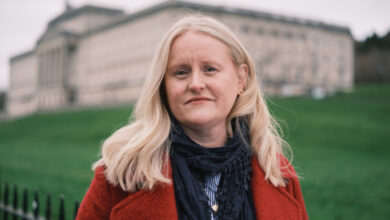Youth justice reviewed
 Youth justice in Northern Ireland is currently being reviewed. Emma Blee reports on the key issues to be addressed.
Youth justice in Northern Ireland is currently being reviewed. Emma Blee reports on the key issues to be addressed.
The age that children are held legally accountable for crime and the way they are treated within the justice system are being examined as part of a major review.
Last February’s Hillsborough Agreement set out plans to review “how children and young people are processed at all stages of the criminal justice system, including detention, to ensure compliance with international obligations and best practice”.
In Northern Ireland, England and Wales, the age of criminal responsibility is currently set at 10. In Scotland, it was raised from eight to 12 in 2009.
Announcing the review in November, David Ford said that “to reshape the justice system, it is important to take a critical look at where we are and what we need to do to further refine and improve our approaches to addressing youth offending.”
Professor Phil Scraton, Chair of Criminology at Queen’s University, told agendaNi that after looking at the terms laid out in the Hillsborough Agreement he “isn’t sure that the way the review has been established and set up will meet those demands and expectations”.
One of his main criticisms is the extent of the review’s impartiality. He highlighted that when the review team was initially set up it had three people, one of whom was the director of the Youth Justice Agency. While the member has now withdrawn, Scraton claims that “the very intention of putting a member of the Youth Justice Agency on the board, and in terms of who is actually servicing the review, brings into question the independence of the review team”. He is also critical that there was no consultation process before the review began.
The current age of criminal responsibility in the province is “very low”, according to the academic. He believes that lifting the age of criminal responsibility is a starting point towards decriminalising young people’s behaviour. Scraton recommended that the age should be raised to 14 or 15 but said that “there is absolutely no justification for having it below 12”.
When children commit acts that could be defined as crimes, Scraton believes it is necessary to understand the reasons behind the behaviour.
“We are in a climate of intolerance against young people and children. The legacy of conflict we have in Northern Ireland creates a dynamic whereby we tend to be more severe and punitive when it comes to children and young people.”
He claimed that giving a child a criminal record is not the answer as they may not have full capacity; instead a welfare disposition should be adopted. This would mean decriminialising the behaviour by understanding the reasons for the child’s actions, bringing the individual to terms with what they have done and intervening to ensure that the actions are not repeated.
An inter-departmental approach is vital, said Scraton, as youth justice cannot be detached from other aspects of children’s lives. Education, he remarked, is an essential part of early intervention. Healthcare is also an important factor.
“We have one of the weakest mental health service provisions for children and young people in Europe. It is quite incredible that in a society that should spend a lot of time, effort and money on supporting children and young people who have been affected by conflict, we have a situation where that is weak.” Scraton believes this is one of the main reasons that lead to children and young people ending up in trouble.
A spokesman for the Department of Justice said David Ford has made it clear that the review is “comprehensive and fully independent and will operate under broad and flexible terms of reference”.
He added: “In establishing the review he has listened to concerns in relation to perceived independence and timescale and has responded positively on both counts. Executive ministers have nominated representatives for their department to inform the review.”





